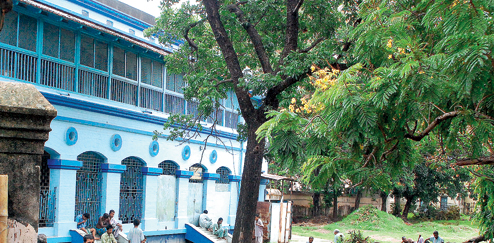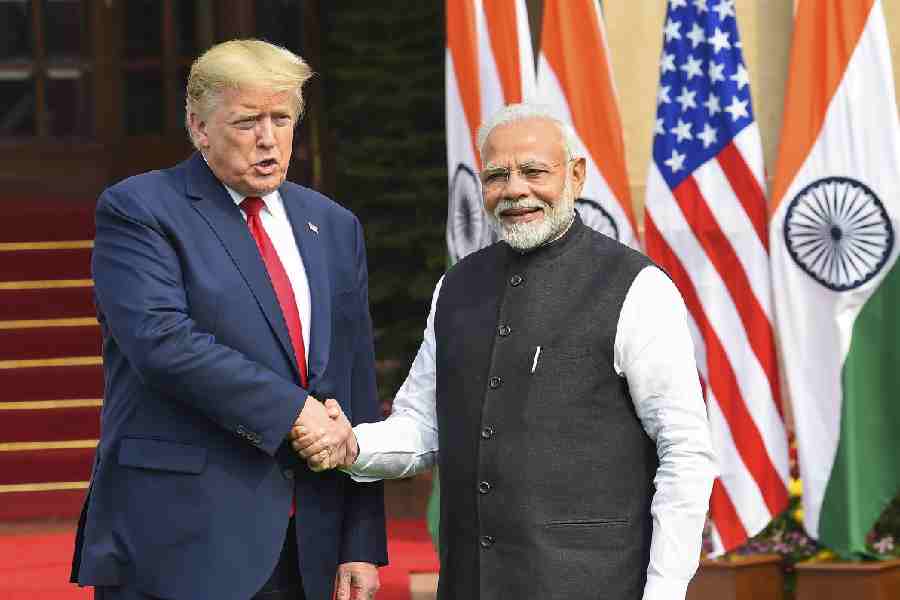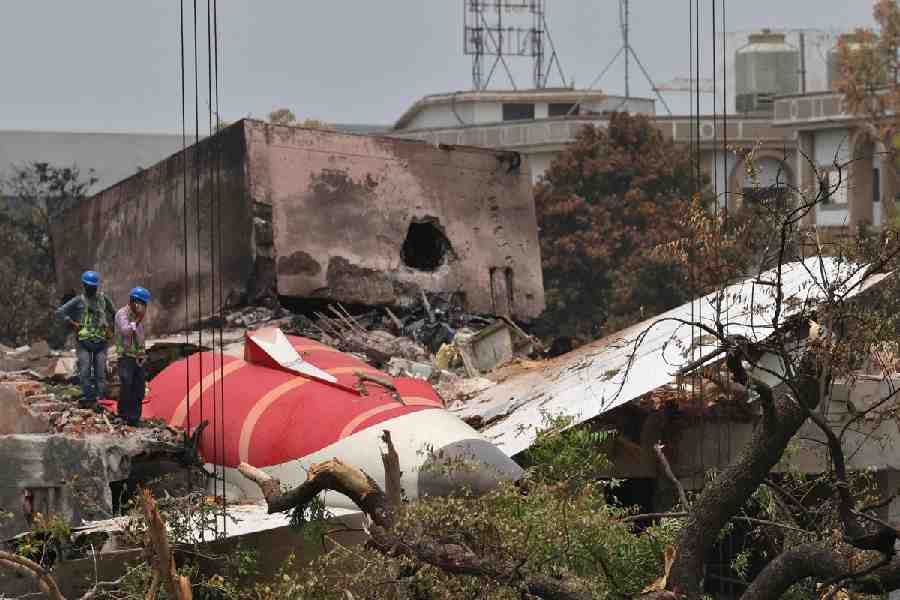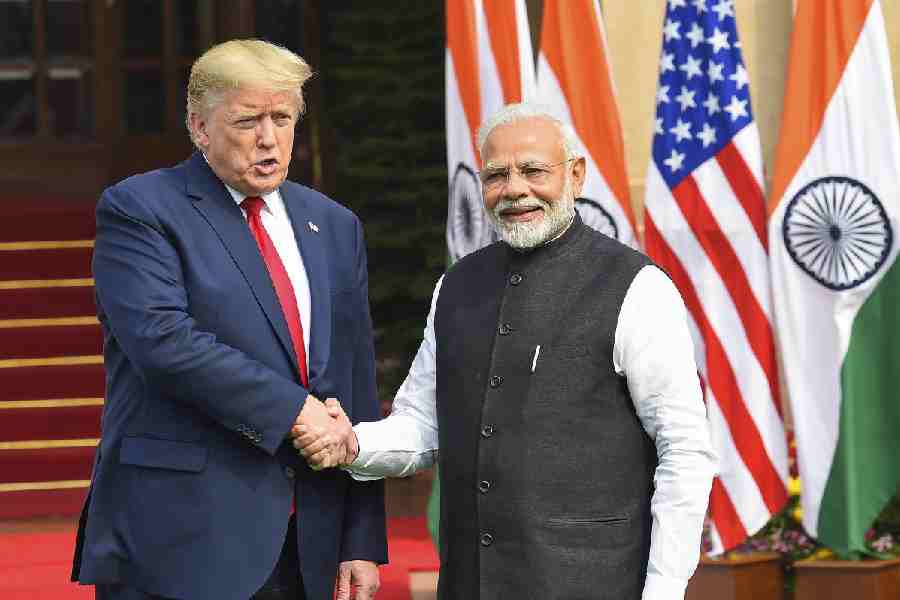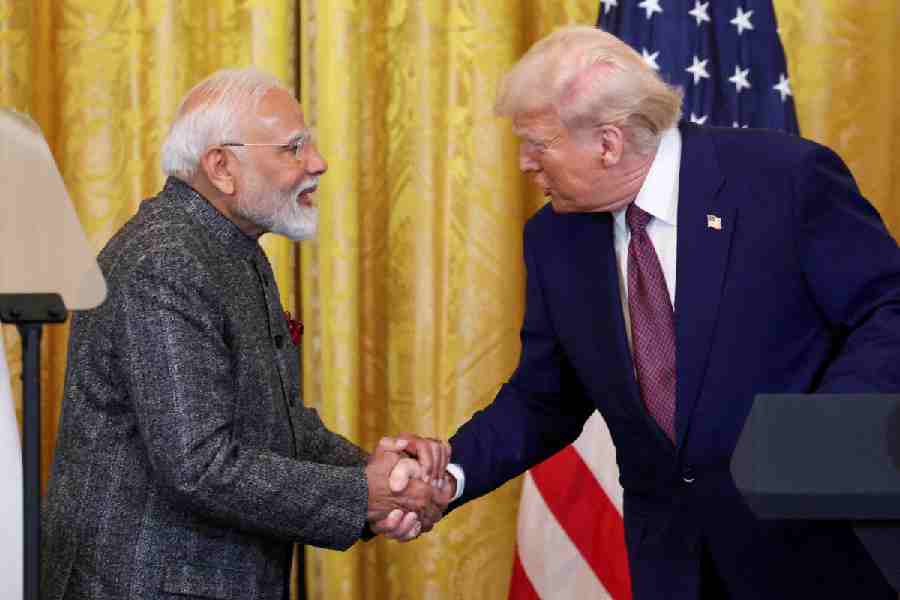
Two women and a man stood near the iron gate to Calcutta Pavlov Hospital around 2.30 on Thursday afternoon, their eyes seemingly searching for someone. All three were carrying their belongings, stashed into small bags.
The trio were inmates of the hospital where Partho De of 3 Robinson Street has been kept since June 11 for observation and treatment of schizophrenia.
While Partho is unlikely to be sent home anytime soon, the three faces Metro found at the gate to the state-run hospital on Gobra Road have long been certified "cured". Their families have yet to take them home, though.
"This is a scene we have become used to. They step out of their wards after packing their belongings and stand outside, as if expecting a family member to arrive any moment to take them home," a source at the hospital said.
From the outside, the hospital that has suddenly become the focus of public attention because of Partho's presence is no different from any other stare-run health care facility. Most of the buildings are painted in blotchy blue, one half of chief minister Mamata Banerjee's favourite colour combination. And just like the majority of government hospitals, they are rundown, filthy and cramped with patients exceeding the number of beds available.
But life inside this facility for treatment of mental illnesses is different from that in other government hospitals in the city. Patients here don't complain about the shortage of beds. They don't mind sleeping on the floor or even under a bed. Many of them stay on for years because they have nowhere else to go.
"Many of the patients have been certified fit for discharge. But their family members won't take them back. That's why the number of patients keeps increasing," an official said.
Pavlov hospital, which became Partho's temporary address after he was found living in a room with the skeletons of elder sister Debjani and two pet dogs for months, has 250 beds and more than 500 inmates, sources said.
A team of 15 doctors and 35 nurses runs the hospital, far short of the requirement. The average mental health facility requires around 50 doctors and 150 nurses for 500 patients.
Doctors say it's difficult to keep the patients confined to their beds. Most of them prefer to sleep on the floor - in the dining hall, corridors or under beds. At times, two to three people choose to sleep on one bed.
"Some of them think the space under the beds belong to them and so they just crawl under them. There are others who insist that the dining hall is their place to rest," a hospital official said.
On the day Partho was brought in from his Robinson Street home, he was given a cabin. But he didn't sleep there. He dozed off resting his head on a dining table.
"Since then, Partho has been spending most of his time in the cabin. When not in his cabin, he can be found pacing up and down the corridors or roaming the open spaces, an official said.
"He has begun talking to the hospital staff and other inmates," the official said. "He asks everyone: ' Bhalo achhen? (How are you?)'."
One of the routine problems faced by doctors is not finding their patients where they should be while doing the rounds. "In any other hospital, you don't have to go looking for your patients. Their family members are also around if you need to convey any information. At Pavlov, most patients roam the premises and are usually missing during the doctors' morning and afternoon rounds," a hospital official said.
So how are they traced? "We call them by their names and some do turn up immediately to get examined or have their prescribed medicine. But on most occasions, we have to send our staff to look for them," the official said.
There are patients whose real names the hospital staff don't know because they were brought in after being found loitering on the streets. They are given nicknames. "One patient was very fond of singara. So he was called Singara and he would respond to that name," a doctor at Pavlov hospital recalled. "Others get nicknames like Vaga (short for vagabond) or Sakhi (as in effeminate)."
More than 40 per cent of the patients have been in the hospital for years. "Treatment of mental illnesses take a long time to be controlled or cured. Many are not accepted by their families and friends even after being cured. They stay on and this hospital becomes their home," the doctor said.
The camaraderie among inmates who have known each other for months or years is another discernible difference from other hospitals. "The inmates interact in groups just like a circle of friends with common areas of interest," the doctor said.
It isn't uncommon to see someone whose condition has improved drag a friend who is unwell to the washroom for a bath.
At lunch time in the ground-floor dining hall, another inmate might tell the supervisor to keep a plate of food aside because his friend is asleep on the second floor.
The 25-acre campus doesn't have a guard at any of the entrances. Since June 11, the police have been deployed at the main gate only because Partho is being kept there. Pavlov would probably slip back into oblivion once Partho is discharged or shifted elsewhere.
NAME GAME OF PAVLOVIAN RESPONSE
• What is now Calcutta Pavlov Hospital was Albert Victor Leper Hospital set up for the rehabilitation of leprosy patients on a plot outside the city limits in the 1930s
• Albert Victor Leper Hospital becomes defunct in 1956. Government passes Albert Victor Leper Hospital (Abolition) Act and dissolves the board of trustees. The 1935 act that governed the lepers’ hospital is repealed
• The Bengal government sets up Hospital for Mental Diseases, Gobra, on the abandoned property in the mid-60s
• Chief minister Jyoti Basu renames it Calcutta Pavlov Hospital on September 14, 1985
• Ivan Petrovitch Pavlov, after whom the hospital is named, was a pioneering physiologist whose work paved the way for an objective science of behaviour. He is best known for his findings on conditioned reflexes (Pavlovian response)
• But Pavlov may well have qualified to be a name on the Gobra signboard more for being a Russian than his pioneering work in science. The Left had been on a renaming spree since coming to power in 1977


